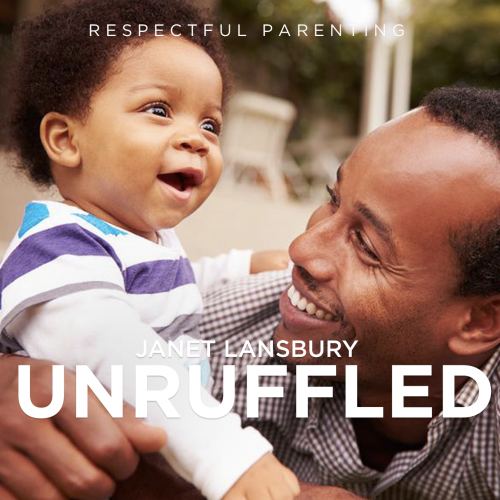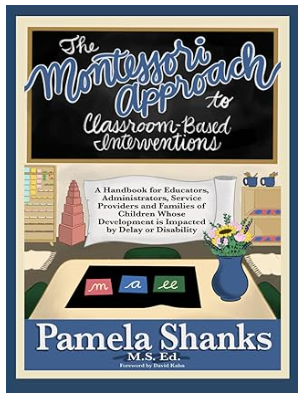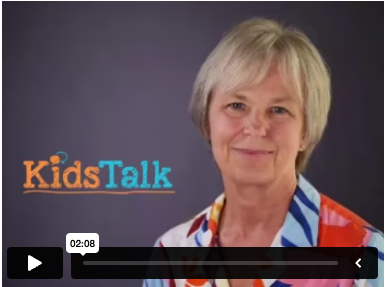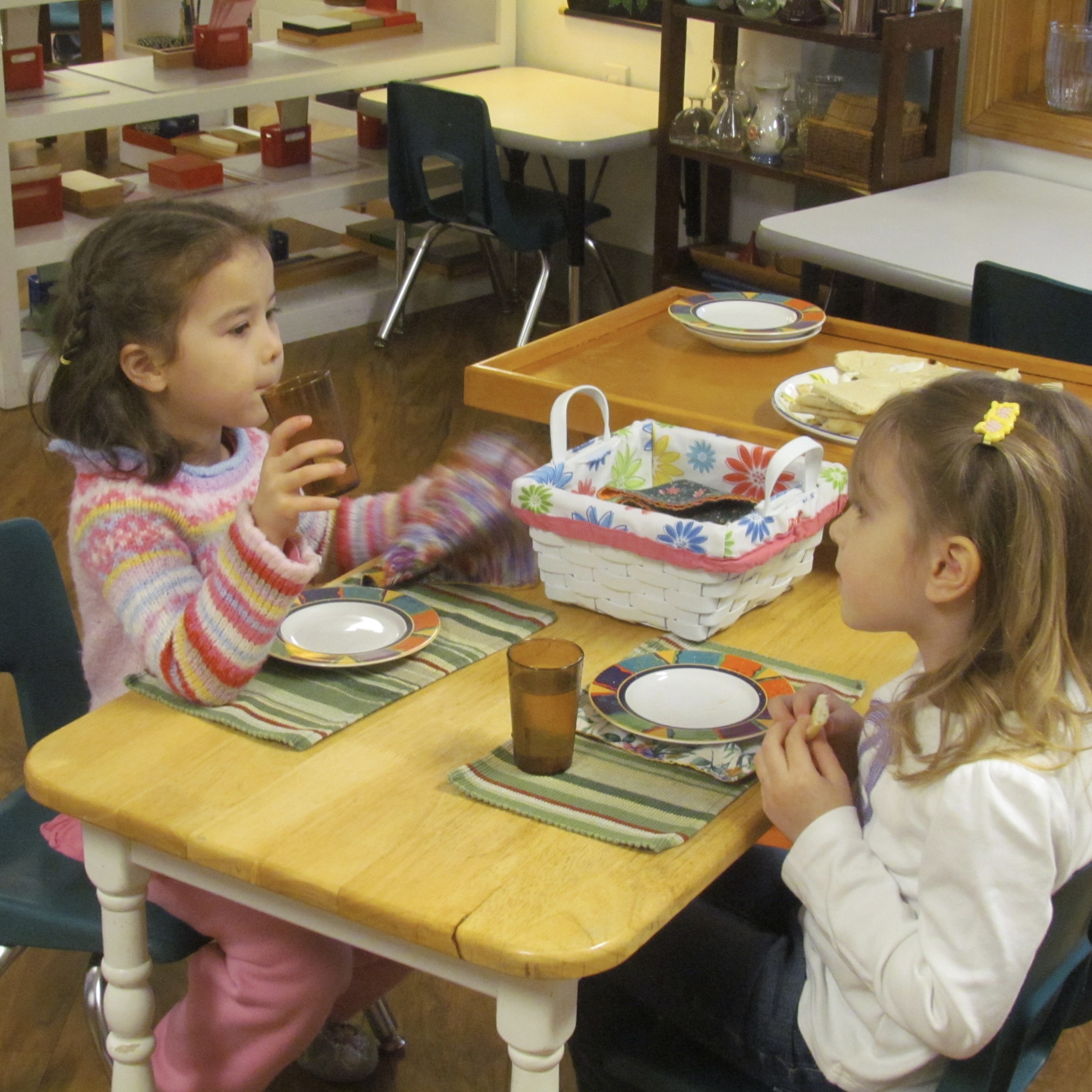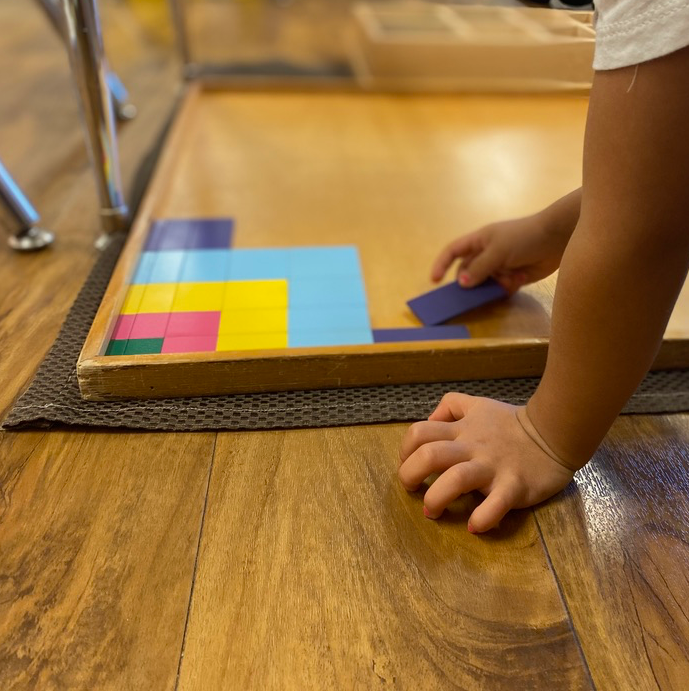by Jennifer Baker Powers
One of the first things a child learns upon entering a Montessori classroom is the unspoken relationship between freedom and responsibility, or as Maria Montessori called it “liberty.” In 1964, she wrote “discipline must come through liberty” and “when he [the child] is master of himself and can therefore regulate his own conduct when it shall be necessary to follow some rule of life”. In the Montessori classroom, the child quickly comes to know certain benign boundaries to this freedom such as having the opportunity to choose her own work from any of the materials she has had a lesson on, the understanding that one may work for as long as he likes with materials if the materials are being treated with care and classmates respected, as well as the permission to move carefully about the space freely and at will.
A common misconception of a Montessori classroom is that children are free to just run about and do as they please all of the time. This is actually quite the opposite of any Montessori class running with fidelity to the method. Anyone who has spent any time in one, soon senses the calm and harmonious way the children interact with their physical space and the other humans in it. The prepared environment, or the classroom intentionally set up to meet the physical, emotional, academic and social needs of the students, is designed to help the child develop his will to make good choices for both himself and for the good of the group. The shelves are low and the materials carefully arranged and selected. The work time is long, allowing for an eb and a flow to a balance of concentration and socialization. By allowing children to responsibly choose how to interact within this space, it is teaching them about boundaries and their relationship to free will. They understand limits.
Just as in a Montessori classroom it is the hope that children will be drawn to activities that are beneficial to their personal development, implementing boundaries and limits in your home and parenting style can encourage this kind of growth as well.
Here are a few tips for establishing appropriate boundaries with your child, while still allowing for the autonomous development of free will.
1. Give choices when it doesn’t matter: Some children are just strong willed and they like to see what will happen if…. Learning about cause and effect and consequences is a huge part of the balance of control with the parent-child relationship. Offer all kinds of choices to the young child of which you do not really care which outcome is selected. “Would you like the red cup or the blue cup?” “Would you like to put on your socks or your pants on first?” “You may hold my right hand or my left hand.” For older children, “would you like to clean up the kitchen or put away your laundry first”? Your child will feel heard and valued as a contributing voice to the family.
2. Consistency is key: It can be really confusing to a child if we think certain behaviors are cute and funny one day or in a certain setting, but then inappropriate the next. Additionally, if you tell your child “no” and then after a period of whining or for an older child “negotiation”, you give in or change your mind, the lesson is that your words do not carry much weight and your thoughts easily swayed.
3. Words matter: Try to phrase requests or expectations in the positive: “If you don’t hurry up and get dressed, we can’t go to the park” becomes “when you are dressed we may go to the park”. “Do you want to hang up your coat?” becomes “please hang up your coat now”. Body language, tone, and facial expressions, of which children are masterful readers, matter here. Yelling things in the affirmative doesn’t count!
4. Set a good example: If we want our children to respect boundaries then we must as well. If you tell your child that you are leaving a friend’s house in five minutes then stay chatting with your friend for another 20, she will learn that your words do not carry much meaning. Maria Montessori believed that the aim of education was to prepare the child for life. This is true for our responsibility as well. Although a bit sad in theory, it is our job to prepare our children to go out into the world and function kindly and competently without us. If you find this interesting and you’d like to discuss the topic more fully, please join the February parenting forum on Tuesday, February 9 th at 7 p.m. We are going to listen to this podcast Embracing Our Power to Be Confident Leaders (a Pep-Talk for Parents) by Janet Lansbury and unpack all of the complexities of freedom and discipline.


